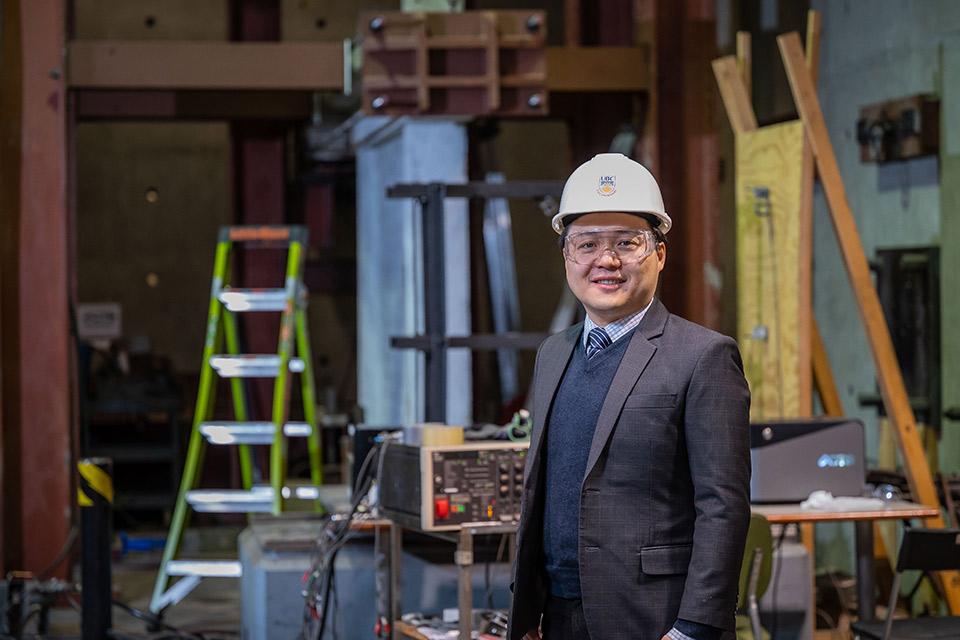
New research in carbon neutral, disaster-resilient timber construction may be the answer to addressing Canada’s urgent housing needs and climate change commitments by 2030.
Dr. Tony Yang, a civil engineering professor in UBC’s Faculty of Applied Science, is leading one of the core themes in a multi-university research project to reset national building standards for mass timber construction.
The “Next Generation Wood Construction” project – a collaboration between 13 universities and 12 government and industry partners – has received $6.25-million in funding from the Natural Sciences and Engineering Council of Canada (NSERC), the largest NSERC Alliance grant in history.
Dr. Yang’s focus is to ensure that new materials, technology and guidelines for mass timber construction of up to 20 storeys are viable, economical and robust by 2028. “This next generation of mass timber construction will mark a turning point for how we build in this country – and potentially the world,” says Dr. Yang.
In addition to leading the work on structural and serviceability performance, Dr. Yang is heavily involved in the research to develop sustainable construction technologies, such as quake-resilient modular construction.
By completing most construction in factories for quick assembly on site, modular construction promises to reduce labour demands on site – especially valuable during a skilled worker shortage – as well as construction waste. While modular construction is already used Singapore, the UK, USA and Canada, these methods are not applied in quake-prone regions. Dr. Yang’s team aims to develop new modular construction that will excel at withstanding earthquakes in high seismic zones, while reducing the carbon footprint of such construction.
Dr. Yang and his collaborators are months deep into the research, and his team has already developed a prototype for a high-performance timber modular building.
“Everything we are doing in this project is going to fundamentally change how we do things in the construction industry,” says Dr. Yang. “In five years’ time, we will be able to deploy the next generation of technology to make infrastructure safer, more carbon neutral and efficient. We will able to protect people’s lives from the kind of disastrous aftermath you see from severe earthquakes.”
Please visit the Faculty of Applied Sciences website to read the full story.
Through Strategy 9: Knowledge Exchange, UBC is committed to improving the ecosystem at the university and beyond that supports the translation of research into action.